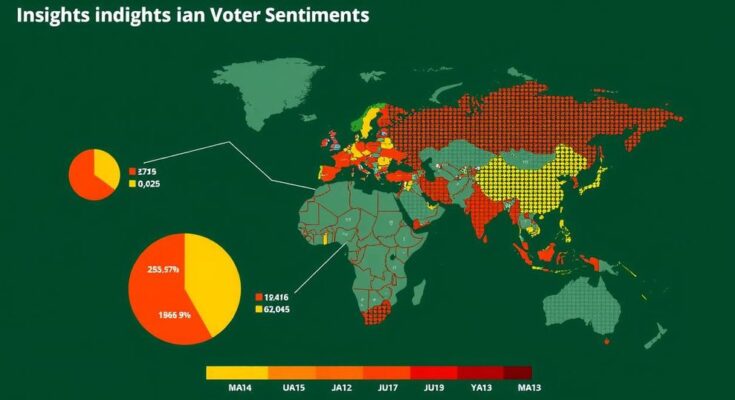The upcoming Ghanaian election is poised to address pressing economic issues, especially inflation and unemployment, which have significantly impacted voters. With a focus on immediate living conditions and government accountability, the electorate’s choices on December 7 will be crucial in shaping the nation’s future as the NPP seeks a third successive term.
Ghana is on the brink of its ninth general election since the reintroduction of multiparty politics in 1992. This election will be significant as the New Patriotic Party (NPP) seeks to achieve an unprecedented third consecutive term in power amid varying economic challenges. Voters are highly concerned about the rising cost of living driven by escalating inflation, which peaked at 54.1% in December 2022, affecting essential goods and pushing many into poverty.
Economic instability has been exacerbated by the government’s debt crisis, culminating in a failure to meet repayments in 2022. The administration has sought assistance from international creditors and implemented a bailout program through the International Monetary Fund. President Nana Akufo-Addo acknowledged that the country faces economic crises but attributing these issues to external factors, while opposition voices cite governmental mismanagement.
Unemployment has steadily increased, particularly impacting the nation’s youth, with the rate reaching concerning levels. Approximately 30% of young Ghanaians aged 15 to 24 are currently unemployed, entrusting the youth’s electoral perspective to play a pivotal role in the election’s outcome.
Gold mining, pivotal to Ghana’s economy, has sparked debates surrounding environmental concerns, particularly due to small-scale illegal mining. Ghana’s robust mineral resources, including gold, oil, and cocoa, have enhanced the economy over the decades but have not shielded it from recent hardships. Historically, Ghanaians tend to prioritize immediate economic conditions in their voting behavior, influencing party success in tightly contested elections.
With election day set for December 7, the results are anticipated shortly thereafter, revealing the voters’ disposition in the face of economic challenges and the prevailing political landscape. Ghana continues to be a beacon of democracy in a region plagued by instability, maintaining a record of peaceful transitions in governance despite occasional challenges.
Ghana has established itself as a significant example of democracy in Africa since transitioning to multiparty politics in the early 90s. This election will reflect the nation’s journey through economic trials, particularly the impacts of inflation and unemployment, which have intensified since 2022. Observers note that in an environment marked by various economic pressures, the Ghanian electorate’s priorities and perspectives are likely to be decisive in determining the direction of governance and policy implementation going forward.
In summary, Ghana’s upcoming election stands as a pivotal moment shaped by contemporary economic challenges, particularly inflation and rising unemployment. As voters increasingly focus on immediate economic conditions, the electoral choices made on December 7 will reflect their responses to ongoing crises and the government’s management of these issues. The outcome could signify a reaffirmation of support for the incumbent party or a demand for change in governance strategies.
Original Source: www.bbc.com




